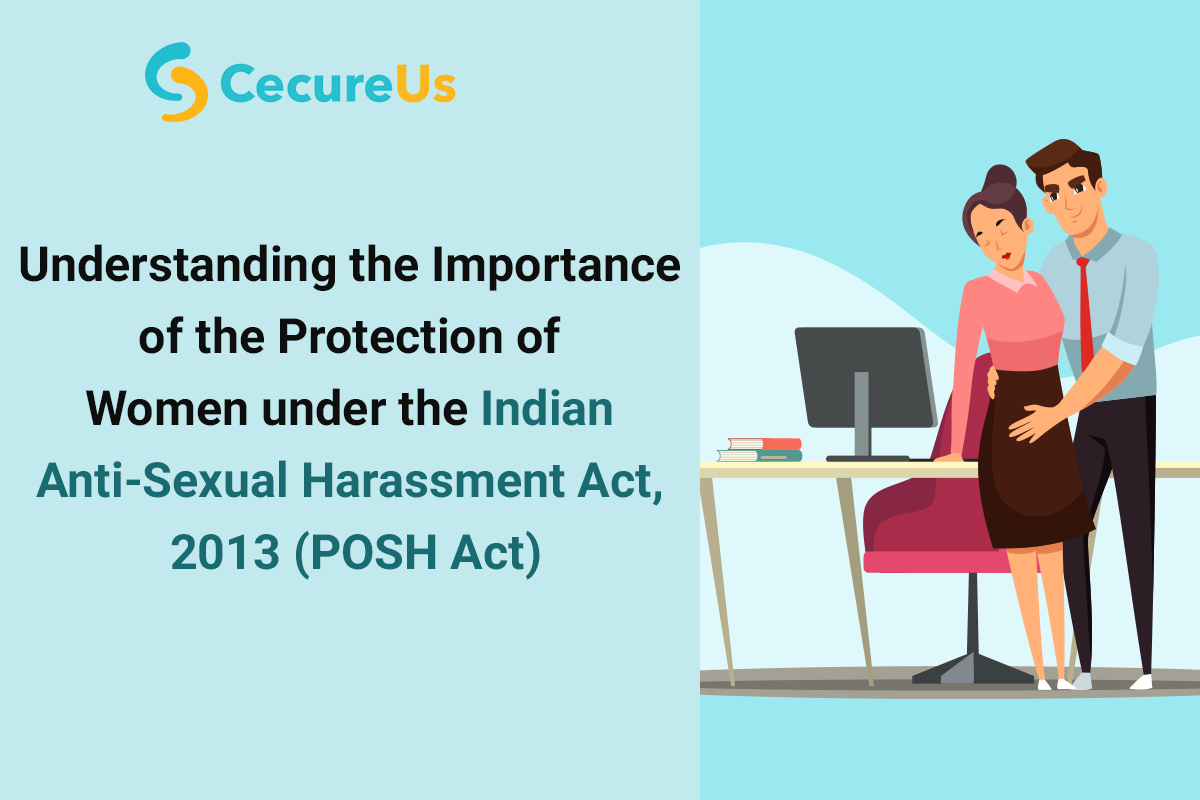
Sexual harassment affects women around the world, regardless of where they live or work. In India, the government recognized the urgency of tackling this issue and took a substantial step in the right direction back in 2013.
India introduced the Sexual Harassment of Women at Workplace (Prevention, Prohibition, and Redressal) Act, often referred to as the POSH Act, to ensure women have a safe and respectful workplace free from sexual harassment.
In India, recognizing the urgent need to address this pervasive problem, the government took a significant step by enacting the Sexual Harassment of Women at Workplace (Prevention, Prohibition, and Redressal) Act in 2013, often referred to as the POSH Act. This landmark legislation strives to provide women with a secure and respectful working environment, one free from the scourge of sexual harassment.
The importance of the Indian Anti-Sexual Harassment Act cannot be overstated. It goes beyond the realm of law and legislation; it represents a significant milestone in the fight for gender equality and the protection of women’s rights in the workplace. Through this comprehensive Act, India aims to create an environment where every woman can work without fear, knowing that her dignity and rights are upheld. This introduction sets the stage for our journey into the depths of the POSH Act and its multifaceted impact on women’s lives and the workplace.
Safeguarding Dignity and Rights
The main goal of the POSH Act is to protect the dignity and rights of women at work. It’s a statement that every woman deserves respect and professionalism. By setting up rules to handle sexual harassment complaints, this law gives women the tools to stand up for their rights, making sure their voices are heard and their grievances are properly addressed.
Creating Safer Workplaces
The POSH Act plays a crucial role in making workplaces safer and more inclusive. Employers are legally required to prevent and address sexual harassment incidents, which fosters a positive environment for everyone. For companies with ten or more employees, they need to establish an Internal Committee (IC) to handle complaints, conduct investigations, and recommend necessary actions. This proactive approach makes it clear that sexual harassment is unacceptable, making workplaces safer for women.
Promoting Gender Equality
Gender equality is a fundamental principle in India, and the POSH Act reinforces this by addressing the power dynamics that often contribute to sexual harassment. It recognizes that women often face a disproportionate impact from such behavior and strives to level the playing field. This Act sends a strong message that women deserve respect, no matter their position or role.
Encouraging Reporting and Redressal
One vital aspect of the POSH Act is its focus on encouraging victims to report sexual harassment incidents. The Act provides a comprehensive framework for reporting complaints, ensuring confidentiality and protecting the complainant’s identity. By providing a secure platform to report harassment, it encourages more women to come forward and seek help. This not only supports individual victims but also deters potential harassers, reducing such incidents overall. Employers are also required to report annually on the number of complaints received and actions taken.
Accountability and Disciplinary Action
The Act holds both employers and harassers accountable for their actions. Employers must establish the IC and provide them with the necessary tools to function effectively. The IC is required to take prompt and appropriate action upon receiving a complaint, conduct a fair investigation, and issue a reasoned order. Employers must follow through on the IC’s recommendations, ensuring that they actively prevent sexual harassment, including false allegations. Penalties for non-compliance emphasize the seriousness of the issue and the need for swift action.
Prevention through Awareness and Training
Prevention is key in the fight against sexual harassment. The POSH Act recognizes the importance of awareness and training in preventing such incidents. Employers are required to conduct regular workshops, training programs, and awareness campaigns to educate employees about their rights and responsibilities. They must also create and share a POSH policy, promoting gender-sensitive workplaces.
One best practice is to combine POSH and Gender Sensitization sessions. While POSH ensures compliance, gender sensitization helps build a culture of inclusion. These initiatives sensitize the workforce, foster empathy, and cultivate a culture of respect and dignity towards women.
Extended Protection beyond the Workplace
While the POSH Act primarily focuses on workplace sexual harassment, it also provides protection to women beyond the office premises. It covers sexual harassment during work-related events, off-site conferences, or training programs, ensuring that women are safeguarded in professional settings regardless of the physical location.
After the pandemic, awareness campaigns reminded employees that the Act applies to virtual workplaces too. This extended protection shows the Act’s commitment to addressing all forms of sexual harassment faced by women in their professional lives, whether physical or virtual.
Empowering Equality, Eradicating Harassment
The Indian Anti-Sexual Harassment Act of 2013 is a significant milestone in the fight against sexual harassment and the protection of women’s rights in India. By establishing a legal framework to address workplace sexual harassment, the Act promotes gender equality, creates safer environments, and encourages reporting and redressal.
It emphasizes the need for awareness, prevention, and accountability, holding employers and harassers responsible for their actions. As India continues to strive for a society free from sexual harassment, the implementation and effective enforcement of this Act remain crucial for the well-being and empowerment of women in the workplace. An inclusive workplace is essential for all employees to thrive, not just women in the workplace.
Please reach out to us for any queries on Understanding the Importance of the Protection of Women under the Indian Anti-Sexual Harassment Act.
For more blogs and articles, visit our official website. Contact us for workshops and queries related to POSH, EAP (Employee Assistance Program,) and Diversity and Inclusion.




